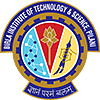TBSE Class 12th Business Studies Syllabus
Table of Contents
- TBSE Class 12th Business Studies Syllabus Breakdown
- TBSE Class 12th Business Studies Syllabus PDF Download:
- How to Download TBSE Class 12th Business Studies Syllabus?
- Important Topics for TBSE Class 12th Business Studies Syllabus
- Best Books for TBSE Class 12th Business Studies Syllabus:
- Preparation Tips for TBSE Class 12th Business Studies Syllabus :
The Tripura Board of Secondary Education (TBSE) has carefully structured the Class 12 Business Studies syllabus to provide students with a strong foundation in the principles of business management, finance, and marketing. The syllabus is designed to prepare students for higher education in commerce, business management, and entrepreneurial ventures.
TBSE 12th Board Exam Syllabus is divided into two key sections—Principles and Functions of Management and Business Finance and Marketing—this syllabus offers a detailed understanding of how businesses operate in today’s dynamic environment. The Tripura Board of Secondary Education (TBSE) is tentatively scheduled to conduct the TBSE 12th board exams in March 2025, with practical exams expected to take place in January 2025. The subject-wise timetable is anticipated to be released in December 2024.
Students will explore essential business topics such as management functions, financial markets, consumer protection, and marketing strategies, all of which are crucial for grasping the nuances of the modern business world. The syllabus not only focuses on theoretical aspects but also includes project work and case studies to give students practical exposure to real-world business challenges.
TBSE Class 12th Business Studies Syllabus Breakdown
The syllabus for Business Studies is divided into two main parts:
- Part A: Principles and Functions of Management
- Part B: Business Finance and Marketing
Part A: Principles and Functions of Management
The chapters and important topics on the principles and functions of management are given in the table below.
| Chapter | Key Topics Included | Description |
| 1. Nature and Significance of Management | Definition, objectives, importance, coordination, management functions | Explores the importance of management in businesses, various levels, and its role in organizational success. |
| 2. Principles of Management | Fayol’s principles of management, Taylor’s scientific management | Study of fundamental principles that guide effective business management and leadership. |
| 3. Business Environment | Meaning, importance, dimensions of the business environment | Focuses on how external factors like economic, political, social, and technological environments affect businesses. |
| 4. Planning | Features, importance, types of plans, steps in the planning process | Detailed study on the role of planning in achieving business goals, types of planning (strategic, operational). |
| 5. Organising | Meaning, process, importance, types of organizational structures | Discusses how businesses organize human resources and materials for efficient operation and goal achievement. |
| 6. Staffing | Recruitment, selection, training, and development | Focus on the human resource management process, recruitment, and training of employees. |
| 7. Directing | Elements of directing (leadership, motivation, communication) | Study of how effective leadership and communication motivate employees towards achieving business objectives. |
| 8. Controlling | Process of controlling, importance, and techniques | Explains the management process of monitoring business performance and taking corrective actions where necessary. |
Also Check: TBSE Class 12 Grading System
Part B: Business Finance and Marketing
The chapters and important topics on business finance and marketing are given in the table below.
| Chapter | Key Topics Included | Description |
| 9. Financial Management | Objectives, financial planning, capital structure, working capital management | Focuses on business finance decisions, capital structure, and efficient financial resource management. |
| 10. Financial Markets | Functions, types of financial markets, stock exchanges, SEBI | Explains how financial markets operate, the role of stock exchanges, and regulatory authorities like SEBI. |
| 11. Marketing Management | Marketing mix, product decisions, pricing strategies, channels of distribution | Discusses how businesses market their products/services, set prices, and reach consumers through various channels. |
| 12. Consumer Protection | Consumer rights, redressal agencies, consumer awareness | Emphasizes the importance of consumer protection laws, rights, and how consumers can seek redressal. |
Also Check: TBSE 12th Registration Form 2025
TBSE Class 12th Business Studies Syllabus PDF Download:
Candidates can download the TBSE Class 12th Business Studies syllabus in PDF format for easy access and offline reference. The PDF includes a detailed breakdown of all chapters and topics, helping students plan their preparation effectively.
Click the link below to download the TBSE Class 12th Business Studies Syllabus PDF:
| Particulars | Link |
| TBSE Class 12th Business Studies Syllabus | Download Now |
Also Check: TBSE 12th Admit Card 2025
How to Download TBSE Class 12th Business Studies Syllabus?
Students can download the TBSE Class 12th Business Studies syllabus from several trusted sources. Here’s a list of websites where it can be accessed, along with simple steps to download it directly from the official TBSE website.
Steps to Download from the Official TBSE Website:
Step 1: Visit the TBSE Official Website: Navigate to tbse.tripura.org.in.
Step 2: Go to the "Student Corner": Find the "Syllabus" section under the student menu.
Step 3: Select Class and Subject: Choose "Class 12" and click on "Business Studies."
Step 4: Download the PDF: Click on the provided link to download the Business Studies syllabus.
Also Check: TBSE 12th Model Question Papers 2025
Important Topics for TBSE Class 12th Business Studies Syllabus
The TBSE Class 12th Business Studies syllabus is designed to give students a comprehensive understanding of modern business practices, enabling them to analyze real-world business scenarios. The syllabus is divided into two main parts—Principles and Functions of Management and Business Finance and Marketing—each holding specific weightage in the final exam.
Part A: Principles and Functions of Management (50% Weightage)
This section focuses on the core principles of management, which are essential for running any business efficiently. It covers key management functions such as planning, organizing, staffing, directing, and controlling, which form the backbone of organizational success.
- Key Chapters:
- Principles of Management: This chapter delves into the fundamental principles outlined by pioneers such as Henri Fayol and F.W. Taylor. Students will learn about concepts like division of work, authority and responsibility, and discipline, which help businesses maintain order and enhance productivity. Understanding these principles prepares students to identify how management theories apply to various business scenarios.
- Business Environment: This chapter emphasizes the importance of external factors like economic, political, social, and technological environments that influence business operations. Understanding the business environment helps students analyze how companies adapt to changing markets and regulatory frameworks. This knowledge is vital for decision-making and strategic planning.
- By focusing on management principles, students gain a foundational understanding of how businesses function at both macro and micro levels. This part of the syllabus plays a crucial role in developing future managers, entrepreneurs, and business leaders.
Part B: Business Finance and Marketing (30% Weightage)
This section introduces students to the world of business finance and marketing. It provides insight into how businesses raise and manage financial resources, market their products, and meet consumer demands effectively.
Key Chapters:
- Financial Management: This chapter focuses on the role of financial management in business decision-making, covering topics such as financial planning, capital structure, and working capital management. Students learn how businesses make financial decisions to maximize profits while minimizing risks. Concepts like cost of capital, financial leverage, and dividend policies are critical for understanding how companies manage their financial health.
- Marketing Management: This chapter covers the marketing mix, which includes the four Ps: Product, Price, Place, and Promotion. It explains how businesses develop and promote their products, choose appropriate pricing strategies, and select distribution channels to reach consumers. Marketing management plays a key role in helping students understand how businesses create value for their customers, ensuring they remain competitive in the marketplace.
- The Business Finance and Marketing section equips students with the knowledge and skills necessary to make informed financial decisions and understand how businesses reach consumers. This part of the syllabus is vital for students aspiring to careers in finance, marketing, and entrepreneurship.
Internal Assessment (20% Weightage)
In addition to theoretical learning, the syllabus also emphasizes practical applications through internal assessments. These include:
- Project Work: Students are required to undertake projects that simulate real-world business scenarios, such as creating business plans, analyzing market trends, or studying the impact of financial decisions on company growth. Project work enables students to apply their theoretical knowledge to practical situations, enhancing their problem-solving skills.
- Practical Assignments: These may include case studies, reports, or presentations, where students analyze actual business cases or financial data to offer solutions or improvements. Practical assignments encourage critical thinking and prepare students for challenges they may face in the corporate world.
Internal assessments are crucial for developing hands-on experience in business studies, allowing students to link theory with practice. These projects and assignments provide them with valuable exposure to real business problems and prepare them for future roles in business management, finance, or marketing.
Also Check: TBSE 12th Exam Pattern
Best Books for TBSE Class 12th Business Studies Syllabus:
To prepare effectively for the TBSE Class 12 Business Studies exam, refer to these recommended books:
NCERT Business Studies for Class 12 – NCERT (2024-25 Edition)
- This is the official textbook aligned with the syllabus, covering all chapters comprehensively.
Poonam Gandhi’s Business Studies for Class 12 – Sultan Chand & Sons
- A detailed reference book with explanations, case studies, and practice questions.
Oswaal Business Studies Question Bank for Class 12 – Oswaal Books (2024-25 Edition)
- Provides chapter-wise solutions, sample papers, and previous years’ questions for exam preparation.
These books are popular choices among students and align well with the current syllabus, making them perfect for effective study!
Also Check: TBSE 12th Topper List
Preparation Tips for TBSE Class 12th Business Studies Syllabus :
- Understand Key Concepts: Focus on mastering fundamental principles of management and financial markets.
- Apply Theory to Practice: Relate the topics to real-world business scenarios through case studies and current market trends.
- Regular Revision: Review key chapters like Financial Management and Marketing Management periodically.
- Solve Model Papers: Practice with past year papers and sample tests to improve your time management and accuracy in exams.
These focused tips will enhance your preparation for the TBSE Class 12 Business Studies exam!

![Tripura University, [TU] West Tripura](https://media.getmyuni.com/azure/college-image/small/tripura-university-tu-west-tripura.webp)

![National Institute of Technology, [NIT] Agartala](https://media.getmyuni.com/azure/college-image/small/national-institute-of-technology-nit-agartala.jpg)






















